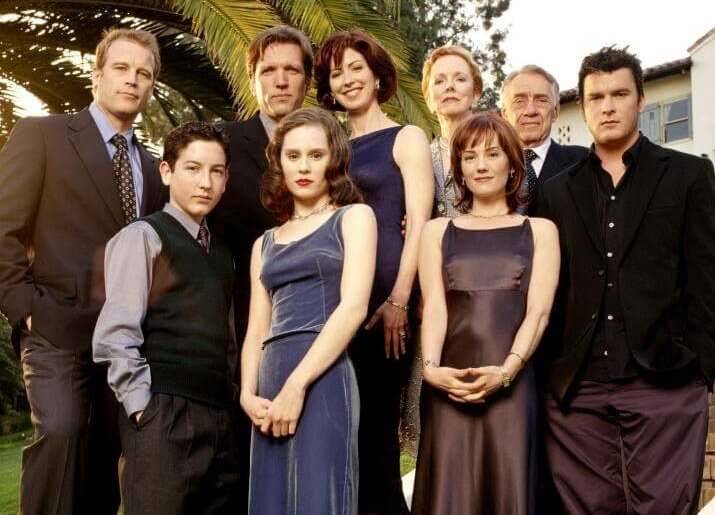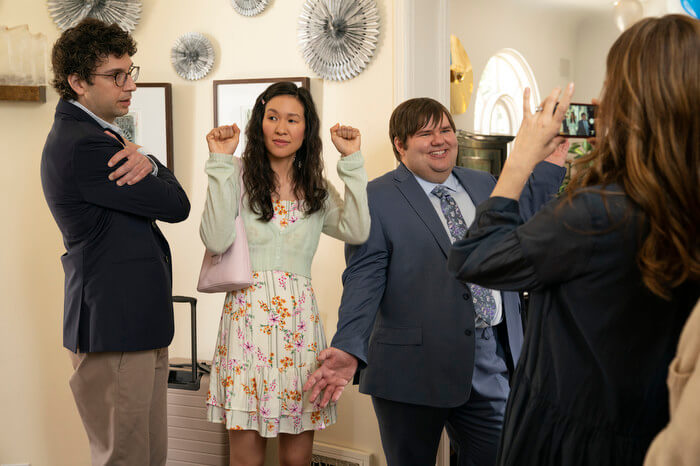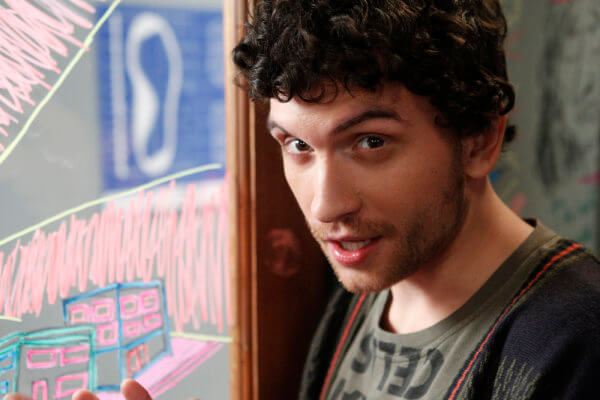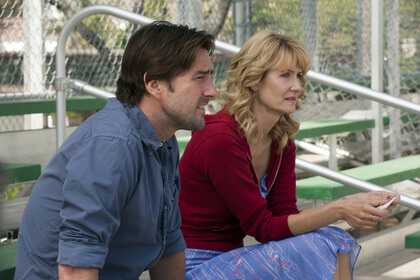Casting Director Cami Patton On Working With Mike White and Jason Katims, Auditions and A.I.
Cami Patton is known for casting such shows as Justified, Parenthood and The Americans. She is an 11-time Emmy nominee and a two-time Emmy winner for her work on the mini-series Band of Brothers and The Pacific. Patton is also the casting director of Apple TV+’s most popular streaming show, the post-apocalyptic sci-fi series, Silo.
In part one, Patton spoke about casting Silo, and her longstanding relationship with its showrunner, Graham Yost. In this installment, Patton reveals some of the memorable projects she’s worked on, her expectations from actors auditioning for her and how A.I. fits into her profession.
What were your casting beginnings like?
Early in my career, I was at Lomar Television, and I did a lot of half-hour comedies, which I loved. My first show was Knots Landing. I did four seasons of it and cut my teeth on those shows. I came out of it doing similar projects – a lot of multi-camera shows and half hours. I enjoyed them, but they weren’t pushing me in any way.
Was there a breakthrough project?
(Casting director) Meg Liberman and I partnered, and so many other shows came into my life because of her. The first one I was the lead casting director on that changed the game for me was Pasadena for Mike White. It was different than anything else out there. It was so well received but way ahead of its time, so it didn’t last. But man, it should have. I’m really proud of it. It made me feel like I joined the grownups in the room if that makes sense. I don’t know what convinced Mike to go with me, but thank God he did. I mean, I did good work on good shows prior, but nothing remotely in them could have informed Mike that I would’ve gotten his tone on Pasadena.
 The cast of Pasadena, photo courtesy of Kinorium.
The cast of Pasadena, photo courtesy of Kinorium.Did your career go in a particular direction after that?
Pasadena opened the door for me to get Pushing Daisies, another of my all-time favorites. I’ll always be proud of that show. It was a very specific tone and a whole different world. Sometimes, you need to show you’re not just a linear thinker. Several years later, I cast Enlightened for Mike, and that was a highlight for me.
You must be thrilled for Mike’s success with The White Lotus.
I am! I’m also so excited for (White Lotus casting director) Meredith Tucker, who has known Mike since at least college and is a brilliant casting director. She deserves every kudos in the world for the casting of both of those seasons. She and I worked together on Enlightened, and no lovelier human being exists.
When you reflect on some of the projects you worked on, which ones stand out and why?
I’ve done a fair amount of work with Jason Katims as well. (Patton cast Katims’ Parenthood and About a Boy TV series’ to name a few). He’s another person I adore. Jason has a son who is on the spectrum. I have a son who has Down syndrome. Most people with Down syndrome also have autistic tendencies, which he does. Jason adapted a show from Israel called As We See It, and I was the first person on it. The three leads were all characters on the spectrum, playing young adults trying to live independently. We were given four weeks to see if we could cast even one of the three main leads with an actor who identified as on the spectrum.
How did that go?
We cast all three! We were told over and over it was not going to happen, that we weren’t going to find anybody. I think we tested 11 actors on the spectrum for those three roles. We rocked it. We reached out to theaters all over the country because I know through my son that there are a lot of theaters that specialize in working with young people on the spectrum. We found incredible people, and all three characters were played for the first time by actors who are neurodivergent. We then pulled from that pool of people and cast every character in the series that was meant to be neurodivergent. Every actor and extra in their drama class was played by a neurodivergent actor.
 (L-R): Rick Glassman (Jack), Sue Ann Pien (Violet), Albert Rutecki (Harrison). Photo by Ali Goldstein/Amazon Studios.
(L-R): Rick Glassman (Jack), Sue Ann Pien (Violet), Albert Rutecki (Harrison). Photo by Ali Goldstein/Amazon Studios.Wow!
Also, we hired some of them to play neurotypical roles that you would never know watching a show because they’re so good. It was the most gratifying thing I could ever have imagined. It was the most beautiful process from the first to the last day. It was like nothing else. I will always hold an incredibly special place in my heart for the project.
Do you have any pet peeves about what actors should never do when auditioning for you?
There is no hard and fast rule because every time I might say, this is what I don’t want, there is somebody I can recall who did exactly that and was genius and got the part. For example, my daughter went to Carnegie Mellon, and while she was there, I would go and watch their senior year showcases and give the students notes before they came in front of the California agents to do their showcases. One of my rules is don’t eat during the audition. Don’t bring something and eat it during the scene. On Zoom, it works better, but it doesn’t work in person because, inevitably, bad things happen. Food gets on your teeth, you choke or you can’t finish your line. So don’t bring food, and don’t mime eating either. You can be busy doing busy stuff.
I sense there was an exception to that rule…
(Actor) Anthony Carrigan was a senior one of the years I was there visiting, and I had this scene from The United States of Tara, another project I cast that I loved doing. He was reading the scene, and he had these chips and was slowly using the chips as part of the scene. They became a character in the scene – how he was eating or not eating them as he talked. It was absolute genius. It completely changed the scene but in such an amazing way. If I would have told him right up front, ‘do not do that,’ I would’ve missed his magic. The minute he got out of school, I hired him on Parenthood for a recurring part because he was so special.
 Anthony Carrigan in Parenthood. Photo courtesy of Kinorium.
Anthony Carrigan in Parenthood. Photo courtesy of Kinorium.How does an actor know what a casting director likes or does not like?
A big part of an actor’s job is figuring out when something is or is not appropriate or helpful to getting the part. If they’re not sure, they should ask. I never think it’s a great idea to come fully in costume, even though there have been people I’ve hired who did. I think nuance is wonderful. You don’t need to come dressed as a nurse for a day-player nurse part, but that will not hurt you. It’s not going to be a distraction. If it’s a waiter role, everybody is usually in a white shirt and black pants, which is fine. Don’t go crazy.
What does ‘going crazy’ mean to you?
Don’t wear an apron. That puts it over the top. What’s most critical is to put across an air of professionalism. Your job at that moment, on that day, is the audition. What you don’t want to put across is any sense of desperation. It should be, ‘I’m coming in, I’m going to do my job in that room, on Zoom or my self-tape, and then I’m not going to think about it again. That job is done.’
What expectations do you have from actors when they are auditioning for you?
Come in an open vessel. Come in having already made choices. Have an idea of what you plan to do, but also listen and be open because that might get thrown out the window before you even start. Some people are so married to what they have worked on that when I say, ‘That was lovely, but let’s do this,’ they are not able to make that change. If you can be facile at that moment, then you are also instilling trust in the director or the casting director that you are a person who thinks on their feet when something is thrown at them.
 Laura Dern and Luke Wilson on Enlightened, photo courtesy of Kinorium.
Laura Dern and Luke Wilson on Enlightened, photo courtesy of Kinorium.Why is that important?
You never know what’s going to happen on a set. You never know what a director or writer will change at the last minute. Being able to show us that none of that is going to throw you off is a huge part of the job. Yes, we’re looking for certain things (in terms of the character), but we are also employers. We are looking for people who will, as employees, be professional and do a good job and not bring their drama to the set any more than you’d want them to bring it to your office or any other place of work.
Was there ever someone who was so the opposite of that professionalism that you called their agent and said never submit them to me again?
I would never say, ‘never submit this person.’ People change, and things happen over time. You always have to allow people to grow. There are people I’ve watched for years and years who were always consistently good and all of a sudden, the light turns on, and they’re beyond amazing and untouchable. Something changes. You want that for everybody. But, once, a young guy came in and stood up on the chair, turned around and proceeded to grab his pants to moon us.
Was that called for in the sides?
It had nothing to do with the part. I was like, ‘Whoa, what are you doing? Get down, stop.’ He said, ‘Jennifer Tilly taught my acting class. She said to do something crazy to get their attention.’ I said, ‘If you do something crazy to get my attention, you will be the last person I will send down to my set.’
That’s a lot of drama in an audition!
Some actors come in and start telling you about all the drama going on in their lives. I think it’s because they know they’re not as focused as they should be, and they want you to understand why. But that doesn’t help them for two reasons. Number one, how do I know they won’t take their drama to the set? And number two, we all have drama, but if you don’t know someone well and are trying to get a job, you should not be telling them your drama.
Is A.I. a concern for the casting industry?
A.I. can generate a list, but that’s not what casting directors do. We are in the heads of the creatives. We have sometimes up to 16 different viewpoints we have to consider. There is a huge amount of intuition, psychology and a way to handle people and express why you believe in something. There is also a trust factor on the part of the people who hire you and have worked with you over time. They know if you’re willing to go to the mat for someone, they should listen to you. A.I. is not going to be able to do that. A.I. is just going to generate. It can’t create, only regurgitate.
There are plenty of strike-compliant roles available on Casting Networks. Sign up or login and see what’s casting near you today!
You may also like:
- Now Casting: CDPH Docuseries, ‘The Sims,’ Microsoft Surface Commercial
- Casting Director Cami Patton on Bringing the Post-Apocalyptic World of ‘Silo’ to Life
- Success Story: Fabienne Grisel on Booking an Ed Sheeran Music Video




